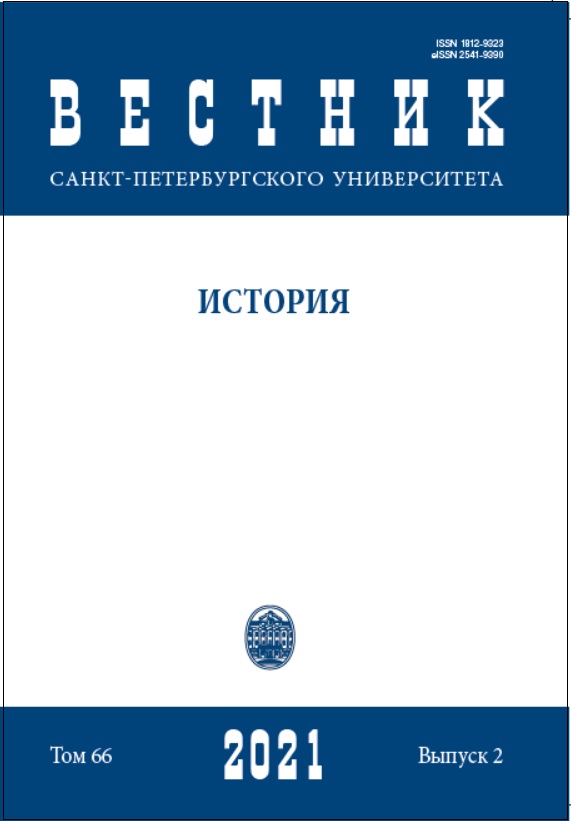Летописные толковины
DOI:
https://doi.org/10.21638/spbu02.2021.202Аннотация
Упомянутых в рассказе «Повести временных лет» о походе Олега на греков в 907 г. толковинов можно принять за характеристику, данную летописцем участникам похода. Неясно на кого распространяется эта характеристика, хотя чаще всего ее принято применять к тиверцам. Большая литература посвящена поиску значения этого слова. Вариантов предложено много, но чаще всего его переводят как «союзники» или «переводчики» (в настоящее время последнее принято считать предпочтительнее). Учитывая, что обзор историографии проблемы ранее делался неоднократно, в тексте статьи дается лишь краткий обзор литературы и приводятся основные аргументов сторонников той или иной точки зрения. В контексте информации о взаимоотношениях русов и славян, содержащейся в известном трактате Константина Багрянородного, можно даже решить, что летопись дает дополнительные сведения о характере этих отношений. Между тем слово «толковины» почти уникальное, кроме летописного рассказа о походе Олега сходное с ним употреблено лишь в «Слове о полку Игореве», где является еще более неясным по смыслу. Автор статьи предлагает отказаться от поиска значения слова «толковины» и признать, что мы имеем дело с опиской, вставкой, т.е. ошибкой, совершенной в ранних сводах, а затем многократно повторенной позднее, и вместо «толковины» в первоисточнике в какой-либо форме, где-то появилось поясняющее «толкование», при переписывании попавшее в основной текст. Задачей фразы, поставленной после перечисления славян-участников похода Олега (без «толковинов»), было просто обратить внимание читателя на то, как греки называют часть славян «Великая Скифия» - словосочетанием, стоящим в летописном тексте следом за «толковинами», которое употреблялось и ранее, как в тексте «Повести временных лет», так и в других литературных памятниках Древней Руси. Искажение основного текста могло произойти в результате переписывания (редактирования) «первой редакции» «Повести временных лет», в которой и появилась приписка «толкование».
Ключевые слова:
Древняя Русь, восточные славяне, летописи, Повесть временных лет, толковины, тиверцы, уличи
Скачивания
Библиографические ссылки
Загрузки
Опубликован
Как цитировать
Выпуск
Раздел
Лицензия
Статьи журнала «Вестник Санкт-Петербургского университета. История» находятся в открытом доступе и распространяются в соответствии с условиями Лицензионного Договора с Санкт-Петербургским государственным университетом, который бесплатно предоставляет авторам неограниченное распространение и самостоятельное архивирование.





